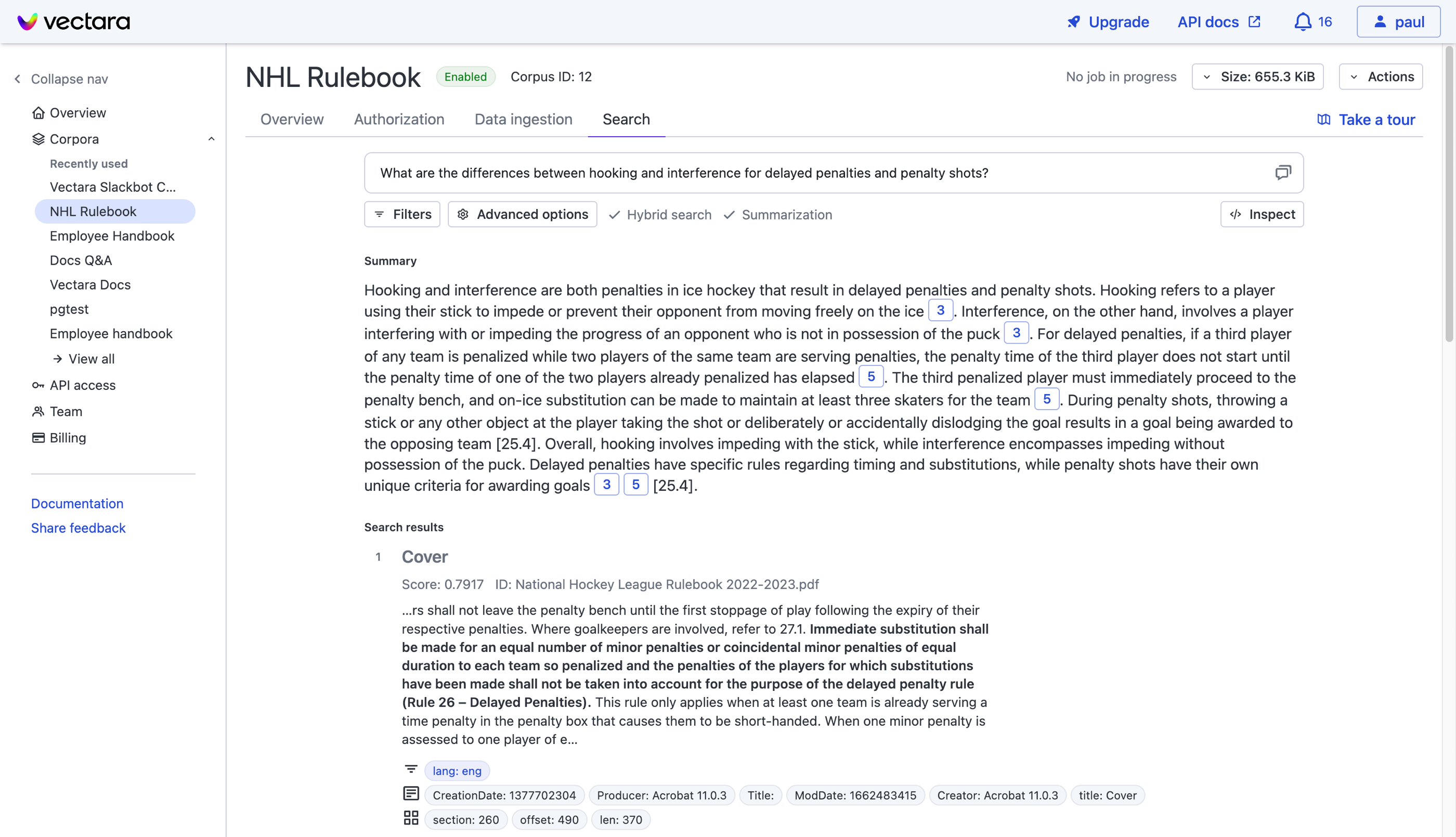Retrieval Augmented Generation (RAG)
Retrieval Augmented Generation (RAG) ensures that generated content is both verifiable and anchored to the data you supply. This minimizes the occurrence of hallucinations (inaccurate or misleading information) commonly found in generative AI systems. Vectara's Retrieval Augmented Generation summarizes search results that answer complex queries directly while providing citations that ground these search results in facts from the data.
Implementing Retrieval Augmented Generation can transform the way information retrieval and AI interactions are conducted, especially in use cases where the integrity of information is critical.
Data retrieval
The Retrieval Augmented Generation process involves retrieving relevant data from a structured corpus. This data provides a grounding layer for the generative component with a factual basis for its response.
Content generation
The Vectara platform utilizes the retrieved data to generate informative and contextually relevant answers. Retrieval Augmented Generation is our groundbreaking way of producing generative summaries on top of your own data.
Mockingbird: Vectara's advanced RAG-specific LLM
Mockingbird is Vectara's cutting-edge new LLM designed specifically for
Retrieval Augmented Generation (RAG) use cases. Mockingbird is available to
all Vectara users by specifying mockingbird-1.0-2024-07-16 as the prompt_name.
Mockingbird is ideal for enterprise applications requiring high-quality
summaries and structured outputs:
- Superior RAG output quality
- Enhanced citation accuracy
- Excellent multilingual performance
- High-precision structured data generation
You can test summarizations with queries in our API Reference and
in the Vectara Console. The prompt_name is optional and defaults to
the best summarizer available to your account type. Users can also
select other available summarizers.
This example shows a complex question with a summary that contains several citations and the search result highlights relevant information:
